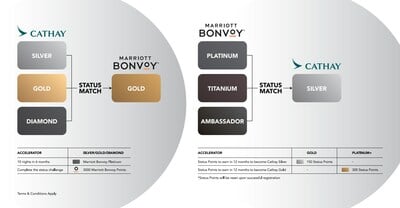ולאחרונה, התעשייה הרכיבה נתיב ארוך טווח עם המלצות להשיג אפס פליטות. ההשתתפות ביוזמות השונות הללו הובילה את חברינו להשקיע רבות בתוכניות איסוף נתונים, להגדיר יעדי פליטות וצמצום פסולת נועזים ולפרסם את נתוני הפליטות של Scope 1 ו- Scope 2 שלהם. חלק מהחברים הלכו אפילו רחוק יותר וכבר מדווחים על פליטות Scope 3 שלהם.
על ידי מתן גילויים אלה, החברים שלנו מספקים למשקיעים מידע שימושי רחב.
כל מאמצי החשיפה הללו היו, עד כה, מרצון בלבד וחברים אחרים נמצאים עדיין בשלבים המוקדמים של פיתוח מדיניות ונהלי המדיניות שלהם הקשורים לאקלים ואיסוף סיכונים.
המעבר מחשיפה מרצון למשטר דיווח חובה וכפיית דיוק חשבונאי על דיווח נתוני פליטות כבר גורם לכמה מחברינו לשקול מחדש את גישתם לשינויי אקלים.
אנו מאמינים שהוראות מסוימות של הכלל כפי שנוסחו ירתיעו חלק מהנרשמים מלהמשיך בשיטות הנטוות קדימה ולאמץ יוזמות הקשורות לאקלים.
לפיכך, אנו ממליצים ל-SEC לשנות את התקנון ולשלב את השינויים הבאים:
- בטל את כל הדרישות שלפיהן נרשמים חושפים את פליטות Scope 3 שלהם, או לכל היותר, אפשרו למסור גילויים כאלה במקום להגיש.
- הסר את הדרישות לפיהן נרשמים יקבלו בטחון לגבי גילויי ה-GHG שלהם או, לכל היותר, דורשים "ביטחון מוגבל" החל משנה 4.
- ספק בהירות נוספת לגבי הדרישות המוצעות להוצאות הקשורות לאקלים, סיכונים ופעילויות מעבר, והסר את הדרישה המוצעת לגילוי ההשפעה של הפריט עבור דוחות כספיים מאוחדים.
- דחה את יישום הכלל לפחות שנתיים כדי לספק לנרשמים מספיק זמן לקלוט את הכלל ולפתח את המדיניות והנהלים הדרושים לעמידה נאותה.
- בטל דרישות המופעלות רק על ידי פעולות קודמות או נוכחיות של חברה.
- הפרד את כל דרישות הגילוי האקלים המוצעות מטופס 10-K ואפשר לנרשמים לחשוף מידע זה בדוח נפרד בזמן שמתיישר עם דיווח הקיימות הנוכחי שלהם.
הערות והצעות ספציפיות של AHLA נדונות בפירוט רב יותר להלן. לדיון הזה קודמת סקירה קצרה של AHLA, החברים שלנו והמבנה הייחודי של התעשייה שלנו. אנו מצפים להמשיך בשיחה הזו בזמן שה-SEC פועל לתיקון ולסיום הכלל.
רקע
החברות של AHLA מייצגת את כל מגזרי עסקי המלונאות והאירוח ב-
תעשיית האירוח בארה"ב מורכבת באופן ייחודי וכוללת מגוון של ארגונים
מבנים, הכוללים במידה רבה כמה גופים מרכזיים, כולל מותגי מלונות, בעלים/REIT ומנהלים/מפעילים של צד שלישי. בעוד שמבנים אלה משתנים, לעתים קרובות עם ישויות המשרתות מספר תפקידים, ישנם ארבעה מודלים דומיננטיים של בעלות וניהול שרלוונטיים לכלל ה-SEC:
- בבעלות מותג ומופעל;
- מנוהל מותג;
- זכיינות; ו
- REITs.
בבעלות מותג ומופעל. תחת מבנה בבעלות מותג ותפעולי, מותג מלונאות (בדרך כלל חברה ציבורית גדולה), הוא הבעלים של הנכס הבסיסי וגם מבצע את כל פונקציות הניהול והתפעול.
למותג יש שליטה פיננסית ותפעולית מלאה בנכס וצוות המלון מועסק ישירות על ידי המותג. כבעל המלון, למותג יש שיקול דעת מלא ליישם תוכניות ושיטות עבודה רצויות לביצוע התוכניות האסטרטגיות שלו.
בניהול מותג. תיקי מותגי מלונות רבים כוללים גם נכסים המנוהלים על ידי המותג אך בבעלות גופי צד שלישי כגון REIT (כפי שיוסבר בהמשך) או בעלים פרטיים. במודל המנוהל, המותג יעסיק בדרך כלל את האנשים העובדים בבתי המלון שהוא מנהל ויש לו בקרה תפעולית כללית, בכפוף לרמה מסוימת של תשומות הבעלים.
זכיינות. זכיינות הוא המודל הנפוץ והצומח ביותר בתעשייה שלנו, כבר כמעט 80 שנה. יותר ממחצית מכל המלונות בארה"ב זכאים כיום בזכיינות.
על פי מבנה זה, בעלים עצמאי (זכיין) מתקשר בהסדר רישוי עם מותג מלונאות (זכיין) המעניק לבעל הרשאה חוקית להפעיל את בית המלון של הבעלים על שם הזכיין.
הבעלים יכול למנף את המוניטין, הסדרי ההפצה והתשתית של המותג בתמורה לתשלום עמלות שונות. לזכיינים ולזכיינים יש תפקידים ואחריות מוגדרים בבירור. בעלים, שלעתים קרובות פועלים כעסקים פרטיים קטנים, עשויים להידרש לקיים סטנדרטים ויוזמות של מותגים מוגדרים, אך לשמור על שליטה משפטית ותפעולית מלאה על הנכס.
המותג אינו מחזיק או שולט בנכס הבסיסי וחסר את הסמכות החוקית להציב דרישות לבעלים אשר מחוץ לתחום חוזה הרישוי.
בעלים רשאים להפעיל את המלון בעצמם או לשכור חברת ניהול עצמאית שתפעיל את המלון על בסיס יומיומי. עם זאת, בנסיבות מסוימות, המותג ישמש כמנהל הנכס וכן כבעל הזיכיון, ובמקרה זה יחולו המרכיבים האופייניים של נכס "מנוהל מותג" המתואר לעיל.
יש לציין כי מותגי מלונות משתנים באופן מבנה הפורטפוליו שלהם - מותגים מסוימים מסתמכים במידה רבה על מודל הזכיינות, בעוד שלאחרים יש תיקים מנוהלים משמעותיים (בארה"ב יש חלק קטן יחסית של נכסים בבעלות מותגים ומופעלים). להבחנה כזו בין קטגוריות יש השלכות משמעותיות על שיעור הפליטות המרכיבות את פרופיל החממה של כל חברה.
REITs הם מבנה בעלות נפוץ נוסף בתעשייה שלנו ואלו הנסחרות בפומבי יושפעו משמעותית מהכלל. לינה/אירוח REIT ייחודיים בכך שהם הבעלים של נכס המלון הבסיסי, אך נדרשים להעסיק חברת ניהול עצמאית שתפעיל או תנהל את הנכס, ולכן מסתמכים במידה רבה על קבלני צד שלישי.
REITs either enter into licensing agreements with hotel brands pursuant to a franchise model or enter into a management agreement with the brand itself to run the hotel. REITs may also contract with private companies to manage the property on their behalf. These businesses are often small, local, or regionally based.
The management company has sole responsibility and authority over day-to-day hotel operations, including the hotel’s energy purchases and expenditure as well as sourcing of inventory, supplies, and services.
Lastly, it is critical we mention that our members are still struggling to recover from the devastating impact of the COVID-19 pandemic. While certain portions of the business are rebounding, our industry continues to experience volatility and full recovery of profitability is likely still years away.
Further, current labor market dynamics have resulted in severe staffing shortages at all levels. In surveying our membership, nearly 50% of respondent hotels are severely understaffed and almost all members have expressed difficulty in filling open positions, both in hotels and in corporate offices.
Yet, the SEC estimates that companies will have to undertake an additional 3,400 to 4,400 hours of work in the first year, and up to 3,700 hours in years two through six, to comply with the new reporting obligations.
Layering on these new mandatory reporting obligations and associated costs will impose additional stress on our members by requiring them to redirect already limited staff to carry out time-intensive data collection and verification efforts and to incur enormous additional costs at a time when our industry is still recovering from COVID-19.
As detailed in our comments below, the variety of unique ownership and management structures coupled with the ongoing economic difficulties our industry is facing will result in a diverse set of challenges for our members as they seek to comply with various provisions of the SEC’s Rule.
דיון
GHG Emissions Metrics
1. Scope 3 methodologies are extremely underdeveloped and likely to produce inconsistent, unreliable data that could ultimately distort a company’s overall emissions profile. Collecting and verifying Scope 3 emissions is particularly challenging for the hotel industry given the variety of ownership and management models and will impose significant burdens on our members. The SEC should therefore eliminate all Scope 3 emissions reporting requirements.
- Lack of development and unreliability of Scope 3 methodologies
The Rule requires certain registrants to disclose their total Scope 3 GHG emissions if material, or if the registrant has set a GHG emissions reduction target or goal that includes its Scope 3 emissions.
The SEC has generally acknowledged the difficulty of Scope 3 reporting, noting that these emissions “would likely impose the greatest compliance burden for registrants due to the complexity of data gathering, calculation, and assessment required for that type of emission.
AHLA acknowledges that Scope 1 and Scope 2 reporting is a much more common practice, particularly for public companies where it is increasingly becoming the norm.
While Scope 1 and 2 reporting is currently voluntary, the available frameworks and service providers that support these disclosures are fairly robust.
Scope 3 assumptions and calculations, in contrast, are very underdeveloped. In describing the rationale for including Scope 3, the SEC notes that this category of emissions may be necessary to provide investors with a “complete picture” of how a company’s GHG emissions throughout its value chain may impact the operations and financial performance of the business.
As a practical matter, however, the available methodologies for calculating Scope 3 emissions are at best underdeveloped and, more likely, are ineffective for producing reliable and comparable information for investors.
The estimates required for calculating Scope 3 emissions vary widely and are heavily dependent on the assumptions relied on by the preparer of such calculations.
Any evaluation of such emissions would need to be reviewed in light of the specific methodologies and assumptions adopted by each reporting entity, which will inevitably vary across registrants, often by such a significant degree as to provide no comparable value to investors.
While the Rule seeks to account for these variables by allowing registrants to use ranges and estimates, the breadth and depth of these requirements necessitate a level of thoroughness that cannot be reliably achieved in our current landscape.
Insisting on emissions figures whose assumptions vary so drastically could produce a distorted picture of a registrant’s emissions profile and how that registrant compares to other companies. This could ultimately mislead investors who may rely on this information for their investment decisions.
מה לקחת מהמאמר הזה:
- המעבר מחשיפה מרצון למשטר דיווח חובה וכפיית דיוק חשבונאי על דיווח נתוני פליטות כבר גורם לכמה מחברינו לשקול מחדש את גישתם לשינויי אקלים.
- In the managed model, the brand will typically employ the individuals working in the hotels it manages and has general operational control, subject to some level of owner input.
- Under this structure, an independent owner (franchisee) enters into a licensing arrangement with a hotel brand (franchisor) that grants the owner legal permission to operate the owner's hotel under the franchisor's name.





















